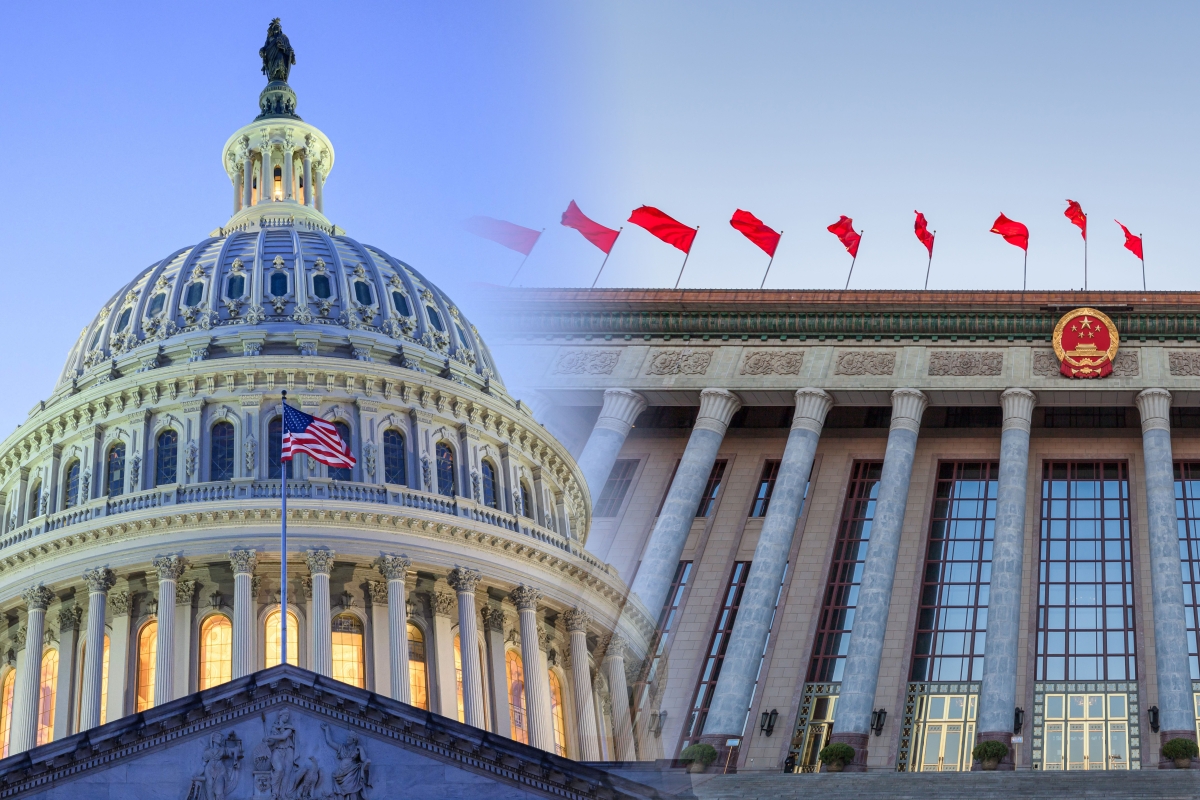New Report | The New Domestic Politics of U.S.-China Relations

NEW YORK, NY; December 9, 2023 — “We are now moving into an era where domestic politics will be just as important as geopolitics — if not more important — in influencing China policy in the U.S. and U.S. policy in China,” says Asia Society Policy Institute (ASPI) Center for China Analysis Senior Fellow Evan Medeiros.
However, in recent years there has been little research on how domestic political contexts in both countries have changed, both as a cause and effect of accelerating U.S.-China competition. To fill this gap, ASPI’s Center for China Analysis has released a new report entitled “The New Domestic Politics of U.S.-China Relations,” authored by Medeiros.
The principal argument of the report is that domestic political contexts in both countries have evolved substantially in the past decade, especially in recent years. This changing constellation of domestic actors, policies, and politics is feeding an action-reaction cycle that has created greater barriers to interaction, communication, understanding, and cooperation between the two countries.
“Diverse forces within both governments and between state and society are profoundly changing how each country sees the other and the policies and actions adopted in response,” the report states. “Domestic politics in both countries are rapidly becoming an important driver of their interaction and, in some cases, an autonomous one that is potentially beyond the direct control of the top political leaders.”
According to the report, “some actors are becoming much more involved, such as the U.S. Congress and the Chinese security services, and some less so, such as the U.S. business community and civil society.” Some are becoming involved in different ways, such as the prominence of China issues in U.S. electoral politics including in state and local elections: many political actors have co-opted China policy as a tool for promoting their political goals and to advance domestic agendas.
In his domestic political strategy, Chinese leader Xi Jinping has centralized decision-making and set new priorities that privileges national interests with a particular focus on national security and values consensus among the leadership. The report notes: “These changes have created and sustained incentives to see the U.S. as a long-term strategic and ideological adversary and, as a result, to minimize communication and cooperation.” This is true even when immediate economic and political needs require tactical diplomatic adjustments, such as following the November 2023 Biden-Xi summit, the report adds.
In the U.S., Congress is the new locus of policymaking on China. “Interest group politics now support more scrutiny and greater competition, with minimal support for trade, investment, and interchange,” the report notes while pointing to the increased politicization of China for electoral advantage in the 2020 and 2024 presidential campaigns.
The U.S. China relationship “works best when some form of strategic modus vivendi operates between them…[and] a shared belief that U.S. and Chinese interests converge — or at least do not diverge — on a variety of issues important to both sides. No such understanding exists today, and one seems far off...domestic consensus is a necessary condition for avoiding conflict between the U.S. and China.”
The report was officially launched at an event held at Asia Society in New York on December 8, 2023, with Medeiros in conversation with Elizabeth Economy, Senior Fellow, Hoover Institution; and Liza Tobin, Senior Director for Economy, Special Competitive Studies Project about the report findings and the challenges of formulating China policy in Washington. Bates Gill, Executive Director, Asia Society Policy Institute's Center for China Analysis moderated the conversation.
"The report provides a terrific typology on the relative actors in the U.S.-China relationship," says Economy. “In particular with the decline of the role of the U.S. business community, which I think Evan details in really important ways. That was a community that supported a really pro-active and robust U.S.-China relationship.”
“I think he’s done an excellent job detailing just how complex this bilateral relationship is, given the number of variables that he points out: media, Congress, different business interests,” says Tobin. “Putting the whole story together really shows how much it has changed since China was this small foreign policy issue ten or twenty years ago.”
Read the full report here.
